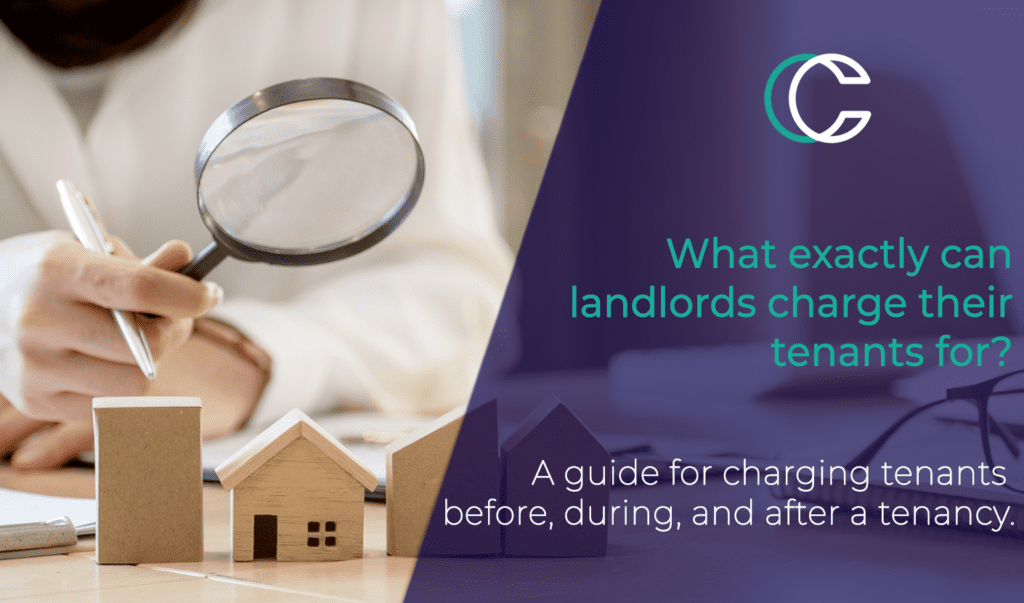What can landlords charge for?
Whether you’re a new landlord, a seasonal landlord or have been a landlord for a long time, renting out and managing property can be time-consuming, stressful and complex, so it is vital to ensure that you remain compliant with the ever-changing regulations, legislation, and tax changes.
One aspect of property management you must ensure you are lawful with is how you charge tenants, and what you charge for.
In relation to a tenancy, the only fees that can be charged to a tenant by the landlord in accordance with the ‘Tenant Fees Act 2019” are:
1) The rent
The agreed-upon amount which the tenant pays to live in the property. Typically, landlords charge this every month
2) A refundable deposit
Which must be placed into a protected scheme. The amount that can be taken relies on the annual rent that the tenancy achieves:
- Where the annual rent is less than £50,000 – 5 weeks’ rent can be taken as a deposit.
- Where the annual rent is more than £50,000 – 6 weeks’ rent can be taken as a deposit.
There are many deposit schemes to choose from. Assuming there are no deductions from it, this deposit is returned to the tenant at the end of their tenancy.
3) A holding deposit
This holding deposit is usually paid by the tenant in order to reserve the property, take it off the market, and prevent further viewings whilst the referencing is completed.
The amount is typically one week of rent and is often deducted from the first rent payment of the tenancy, or refunded upon the tenant moving in.
4) Changes in the tenancy
Payments that are taken in order to change certain details of the tenancy. For example, changing the rent due date each month.
This only happens when requested by the tenant, and the amount chargeable is capped at a week’s rent and no more.
5) Early termination of a tenancy
When a tenant requests to end their tenancy prematurely it typically incurs a fee. All parties must be in agreement.
6) Utilities
Payments taken relating to gas, electricity, council tax, etc.
7) Fees relating to breaches of the tenancy agreement
Such as standard fees for late rent payment, or replacement of a security device or lost key where stated in the tenancy agreement.
These 7 fees are the only situations where agents or landlords charge a tenant, fees charged outside of these scenarios are considered a prohibited payment and are outlawed under this act.
It should be noted that you cannot use the Section 21 eviction process to remove a tenant from a property until you have repaid any prohibited payments that have been charged to the tenant, or have returned any unlawfully retained deposit.
If you are unsure about a certain charge, or whether a fee is prohibited or not, contact Citizens Advice. Or contact us to discuss your property.
If you are looking for more tips and advice about managing your property, visit our Landlord Academy, perfect for those looking to refresh their memory around legislation and good practices surrounding letting.


